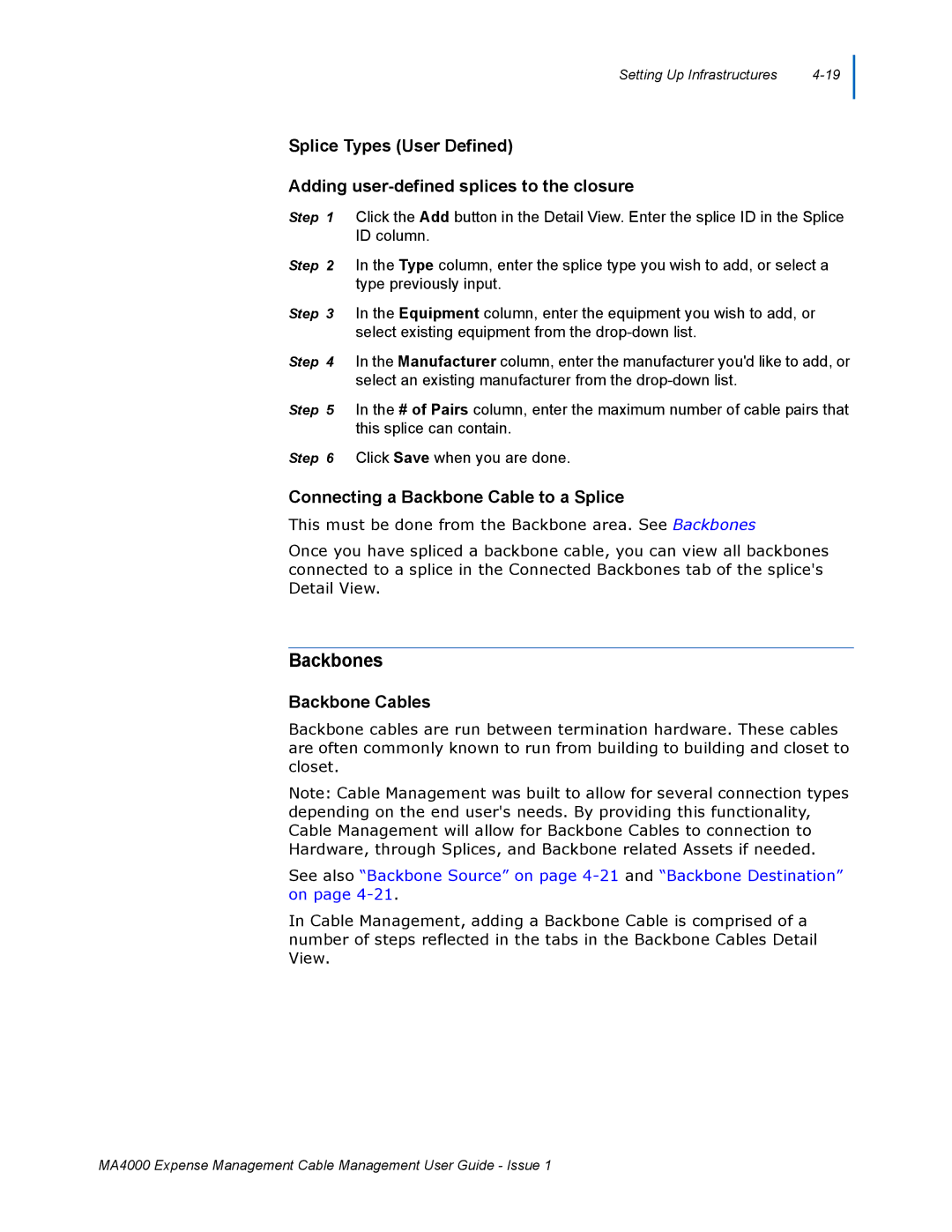
Setting Up Infrastructures |
Splice Types (User Defined)
Adding
Step 1 Click the Add button in the Detail View. Enter the splice ID in the Splice ID column.
Step 2 In the Type column, enter the splice type you wish to add, or select a type previously input.
Step 3 In the Equipment column, enter the equipment you wish to add, or select existing equipment from the
Step 4 In the Manufacturer column, enter the manufacturer you'd like to add, or select an existing manufacturer from the
Step 5 In the # of Pairs column, enter the maximum number of cable pairs that this splice can contain.
Step 6 Click Save when you are done.
Connecting a Backbone Cable to a Splice
This must be done from the Backbone area. See Backbones
Once you have spliced a backbone cable, you can view all backbones connected to a splice in the Connected Backbones tab of the splice's Detail View.
Backbones
Backbone Cables
Backbone cables are run between termination hardware. These cables are often commonly known to run from building to building and closet to closet.
Note: Cable Management was built to allow for several connection types depending on the end user's needs. By providing this functionality, Cable Management will allow for Backbone Cables to connection to Hardware, through Splices, and Backbone related Assets if needed.
See also “Backbone Source” on page
In Cable Management, adding a Backbone Cable is comprised of a number of steps reflected in the tabs in the Backbone Cables Detail View.
MA4000 Expense Management Cable Management User Guide - Issue 1
